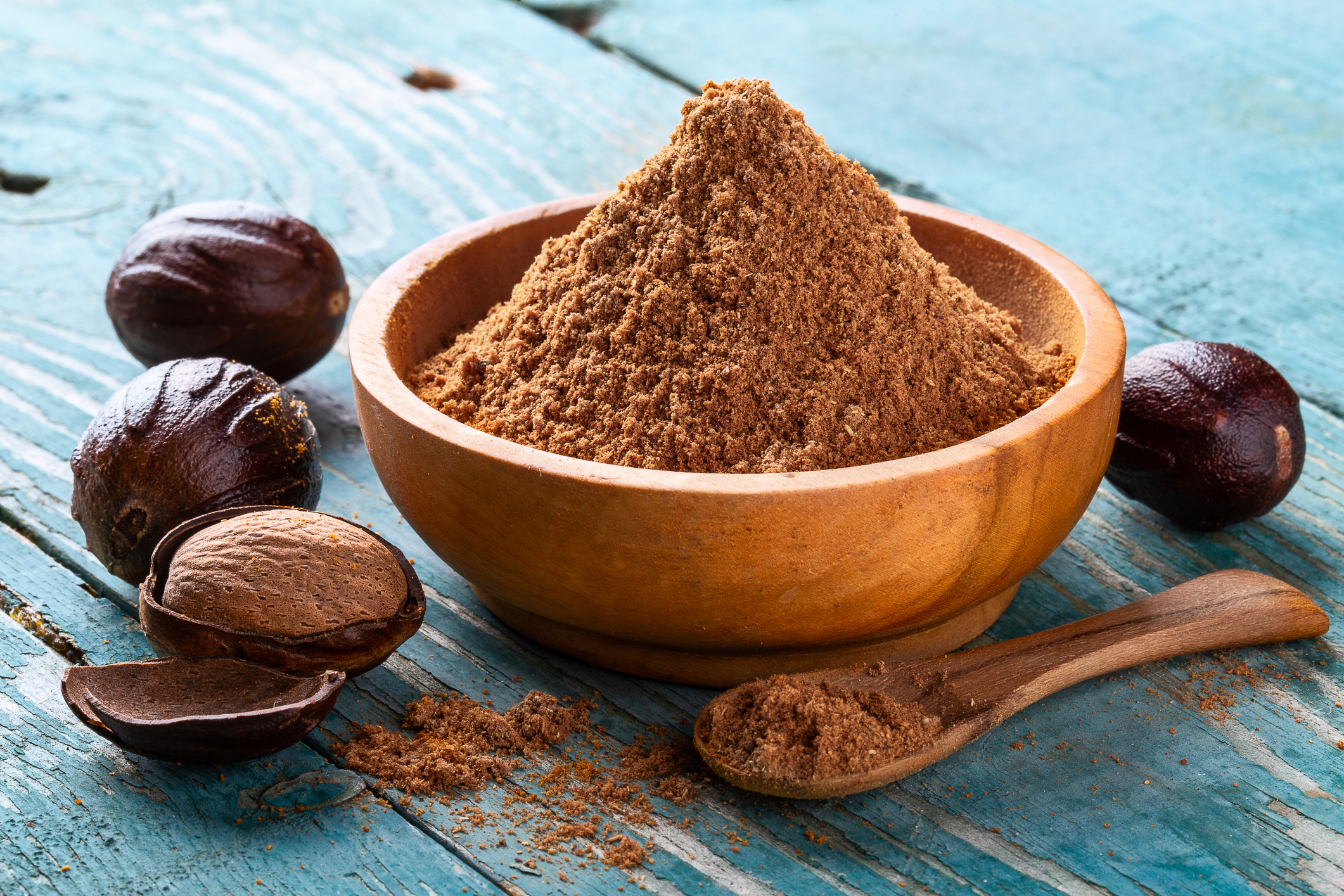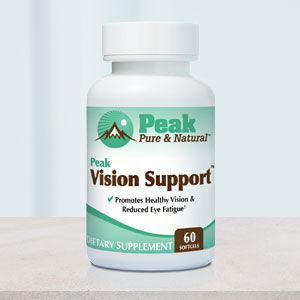Get Easy Health Digest™ in your inbox and don’t miss a thing when you subscribe today. Plus, get the free bonus report, Mother Nature’s Tips, Tricks and Remedies for Cholesterol, Blood Pressure & Blood Sugar as my way of saying welcome to the community!
How nutmeg could lead to a longer lifespan

Scientists in the field of healthy aging are increasingly looking to nature for potential longevity solutions. One answer may lie in phytochemicals, plant-based antioxidant compounds found in whole grains, fruits, vegetables, nuts, herbs and spices.
One of these phytochemical-containing plants in particular, nutmeg, has been the focus of recent research. Previous studies have found nutmeg to significantly reduce E. coli bacteria, fight aging and alleviate serious diseases such as cancer, heart disease and liver disease. The spice also is good for relieving joint pain, gout and toothache.
So far, the specific active ingredient in nutmeg responsible for these health benefits has not been identified. However, researchers in Korea may have pinpointed one phytochemical with a direct link to nutmeg’s anti-aging properties…
The properties of Nectandrin B
Nectandrin B (NecB) is a bioactive lignan compound isolated from nutmeg. Scientists have long known that bioactive compounds have actions in the body that promote good health. So they decided to test NecB on fruit flies to gauge its effect on their lifespan.
Scientists often use the fruit fly as a model organism in studies, particularly those involving longevity, because it shares cellular and developmental mechanisms with humans and other animals.
The fruit flies were fed five types of diet:
- The control group was fed a standard cornmeal diet.
- Two groups were fed a cornmeal diet to which two different doses of the immunosuppressant rapamycin had been added.
- And the remaining two groups were fed cornmeal to which two different doses of NecB had been added.
Differences in survival rates were observed from day 30 of the experiment in which the files were reared — and the results were shocking…
Both of the groups fed the NecB diets showed longer lifespans than the groups fed other diets. However, the group fed the largest dose of NecB saw its lifespan extended 42.6 percent over the control group.
The fruit flies fed the NecB diet also experienced improvements in age-related symptoms including body weight gain, locomotive deterioration, eye degeneration and neurodegeneration.
“The extent of life extension achieved through this experimental study is the most effective achieved to date among other agents,” the researchers write in the published study.
The researchers say that the dramatic reduction of intracellular reactive oxygen species (ROS) levels by NecB captured their attention. “Considering that intracellular ROS plays a critical role in the aging process, we hypothesized that NecB might possess anti-aging efficacy,” they write in the study report.
Using nutmeg in cuisine
The results suggest that NecB may hold promise as a potential therapy for promoting longevity and addressing age-related degeneration.
“We strongly believe that NecB urgently needs further attention and research, as we believe it has made a potential contribution to our understanding of the aging process as well as its application as a potential therapeutic agent for longevity and age-related [degeneration],” the researchers write.
It will be years before researchers determine whether these results will translate to humans. Until then, it’s worth noting that nutmeg is a popularly used spice in the Italian Blue Zone of Sardinia, where people tend to be extremely long-lived.
If you don’t currently use nutmeg in your food and drink, now would be a good time to start. A sprinkle of fresh nutmeg tends to go well with starchy and creamy foods such as mashed potatoes, sweet potatoes, yams, pumpkin or squash. Plus, it can be used to top off green vegetables that have been cooked in butter.
On the sweeter side of the spectrum, nutmeg is often used in gingerbread, coffee cake, fruit cake, rice puddings, custards and custard tarts and bread puddings. It can be grated fresh over cheesecake or added to hot beverages like coffee or cider. A sprinkle of fresh nutmeg is also a traditional addition to eggnog.
This isn’t license for you to start eating nutmeg by the spoonful, however. Even as little as two teaspoons of nutmeg can be toxic because the spice contains myristicin, an oil that can cause hallucinations, drowsiness, dizziness, confusion and seizures. Keep your consumption to the small amounts called for in recipes and you should be fine.
Editor’s note: Did you know that when you take your body from acid to alkaline you can boost your energy, lose weight, soothe digestion, avoid illness and achieve wellness? Click here to discover The Alkaline Secret to Ultimate Vitality and revive your life today!
Sources:
Nectandrin b for longevity: Nectandrin b (in nutmeg) significantly increases lifespan of fruit flies — EurekAlert!
Nectandrin B significantly increases the lifespan of Drosophila – Nectandrin B for longevity — Aging
Major Phytochemicals: Recent Advances in Health Benefits and Extraction Method — Molecules
Nutmeg — BBC Good Food














